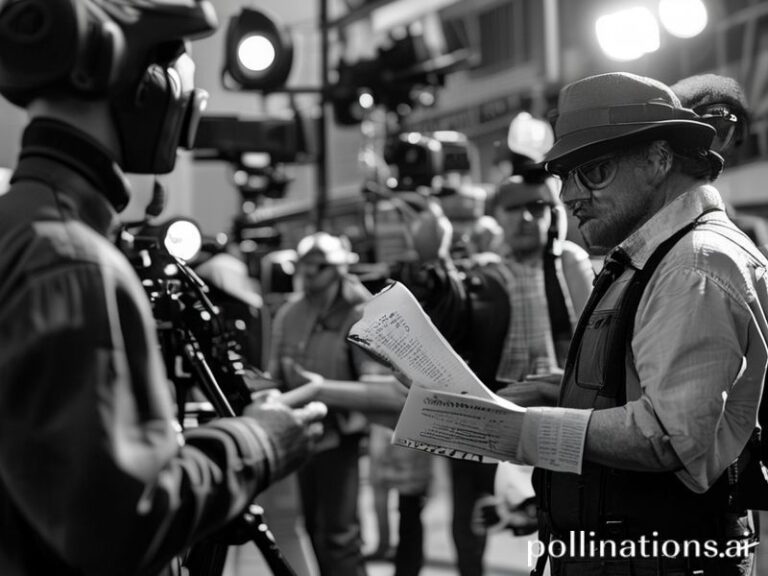minimum wage 2026
Minimum Wage 2026: A Planet-Wide Race to the Bottom That Somehow Still Points Up
By the time the Gregorian calendar flips to 2026, the phrase “minimum wage” will sound quaint—like “chivalry” or “fax machine.” Yet governments from Lagos to Ljubljana are busy pretending the concept still matters, announcing tidy round numbers that fit neatly into press releases and nowhere else into life. The International Labour Organization—headquartered in Geneva, city of caviar and compassion—projects that 90 percent of the world’s workers will still earn less than the local subsistence basket by December 2026. Translation: the floor is technically higher, but the basement flooded years ago.
Let’s take the grand tour. In the United States, the federal minimum clings to $7.25 like a drunk to the last call, but 32 states will mandate at least $17 by New Year’s 2026. That sounds heroic until you realize the average one-bedroom apartment in a mid-tier American city now costs $1,900, utilities not included. Meanwhile, the U.S. Congress—ever the model of self-restraint—gave itself a 23 percent pay raise “to keep pace with inflation,” thereby proving that irony, unlike wages, is inflation-proof.
Cross the Atlantic and the United Kingdom is bragging about its “National Living Wage” hitting £12.70, a figure that sounds positively Edwardian when you remember a pint in Zone 2 London sets you back £8. Across the Channel, France has opted for Gallic subtlety: the SMIC (Salaire Minimum de Croissance) will rise to €1,766 net per month. That buys you existential dread and a studio the size of a modest refrigerator, but at least the bread is still edible.
Asia, as always, believes in economies of scale. India has no statutory national floor; instead it offers state-level “floor wages,” which in 2026 will range from 178 rupees a day in Bihar to 693 rupees a day in Delhi. For context, a Big Mac in Delhi costs 241 rupees. Do the math and you’ll understand why Indian workers treat fast food as haute cuisine. China, not to be outdone, has harmonized regional minimums into five tidy tiers that top out at 2,690 yuan per month in Shanghai. That’s roughly $370, or one-tenth the price of the latest iPhone assembled by the very hands earning said wage—an elegant closed loop that would make Ouroboros blush.
Latin America continues its long-standing romance with hyperbole and hyperinflation. Argentina’s new president has promised to dollarize the economy, which means the minimum wage will be set in greenbacks—currently $450 a month—while inflation gallops at 200 percent in the background. Brazilians will enjoy 1,412 reais, enough for a modest churrasco and the lingering suspicion that the rainforest is being chopped down to finance your Sunday grill.
Africa, ever the optimist, has Ghana promising 18.10 cedis per day in 2026, up from 13.53. A day’s wage buys exactly two rides on the Accra metro, assuming the train shows up. Kenya’s labor cabinet secretary—an actual title—announced a 12 percent bump to 7,500 Kenyan shillings per month, prompting Nairobi Uber drivers to laugh so hard they nearly crashed into the potholes their taxes never seem to fill.
The broader significance? Every government is raising the floor while the ceiling rockets into geosynchronous orbit. The global labor share of income has fallen for 40 straight years, but don’t worry—central banks are on the case, busily tightening monetary policy to ensure the only thing that trickles down is blame. Multinationals headquartered in tax havens applaud the higher minimums from the comfort of their zero-tax atriums, then quietly replace cashiers with QR codes. By 2026 the hottest job will be “empathy coach for self-checkout machines.”
And yet—because humans are nothing if not stubbornly hopeful—these incremental crumbs still matter. A dollar more per day means one less child skipping dinner in Manila, one less Uber driver sleeping in his car in Paris. The numbers are tragicomic, but the hunger is literal. So when you read that Country X has “lifted” its minimum wage by 8 percent, feel free to roll your eyes at the arithmetic. Just remember someone else is rolling coins to pay for insulin.
Conclusion: Minimum wage 2026 is a planetary exercise in optics—governments polishing brass on the Titanic while assuring passengers the deck chairs are ergonomically aligned. Still, every extra cent buys an extra minute of dignity, and in a world busy auctioning off the future, a minute can feel like mercy dressed as mathematics.







